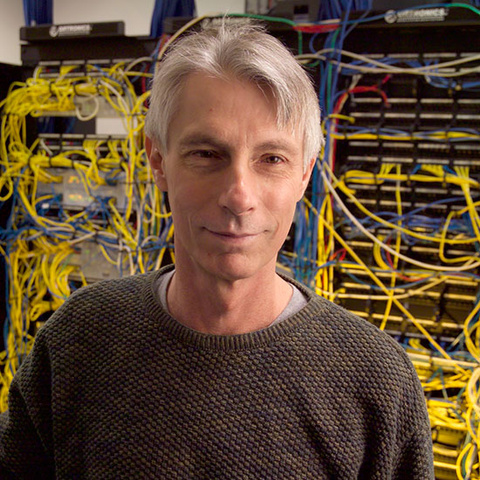Towsley Named to Team Developing the Quantum Internet

The National Science Foundation this week announced a five-year, $26 million initial grant to a consortium led by the University of Arizona to form a new Engineering Research Center, the Center for Quantum Networks (CQN), with partners at Harvard, Yale and MIT, among others, and including quantum networking researcher Don Towsley, a distinguished professor of the College of Information and Computer Sciences.
One of the center's goals is to develop quantum communications and the "quantum internet," where bits of information are encoded in photons of infrared light, for example, instead of radio waves when beaming from a satellite. Once developed fully, quantum communication is expected to be more secure than existing systems.
Towsley says his role in the multi-institution team will be to co-lead one of three research thrusts focused on quantum network architecture. In addition to leadership responsibilities, Towsley will perform research on fundamental performance limits of quantum networks and on the right protocols to achieve these limits.
The University of Arizona leadership team says they hope the new CQN will lay the foundations for a quantum internetby transforming computing, communication and sensing on a new platform. It will connect quantum computers, data centers and gadgets using information states of quantum bits known asqubits. These will someday offer increased processing capacity over the classical data system. It now relies on data storage and processing in the 0 or 1 bit state, but qubits will allow superposition of both states at the same time.
The CQN also is charged with investigating the effects of a future quantum internet on education, workforce development, innovation and society. Organizers also say CQN has a mandate to develop not only the technology, but to address concurrent topics science, law, policy and society as they emerge, within a strong culture of inclusion. It will also emphasize engineering workforce development and include raising student awareness with curriculum and projects involving policy, law and society.
The new CQN will also create Master of Science programs in quantum information science and engineering, believed to be the first of its kind. Another major focus of the CQN team will be research to advance key underlying technologies, including fundamental quantum materials and devices, the quantum and classical processing required at a network node, and quantum network protocols and architectures.
Other universities involved are Brigham Young University, Howard University, Northern Arizona University, the University of Chicago, and the University of Oregon.
This article originally appeared in Inside UMass.